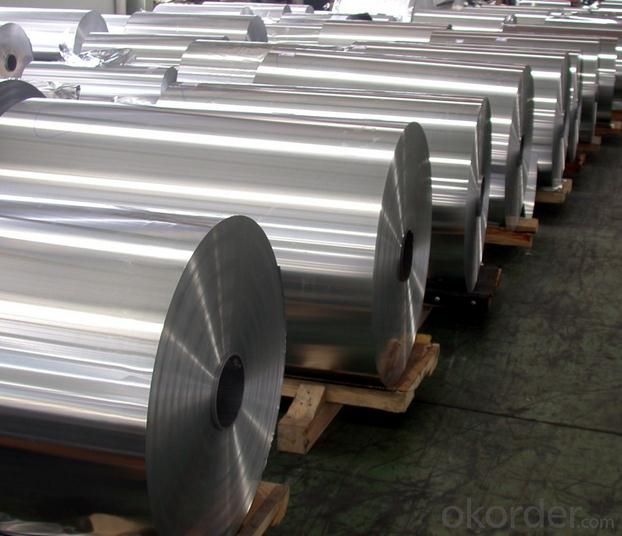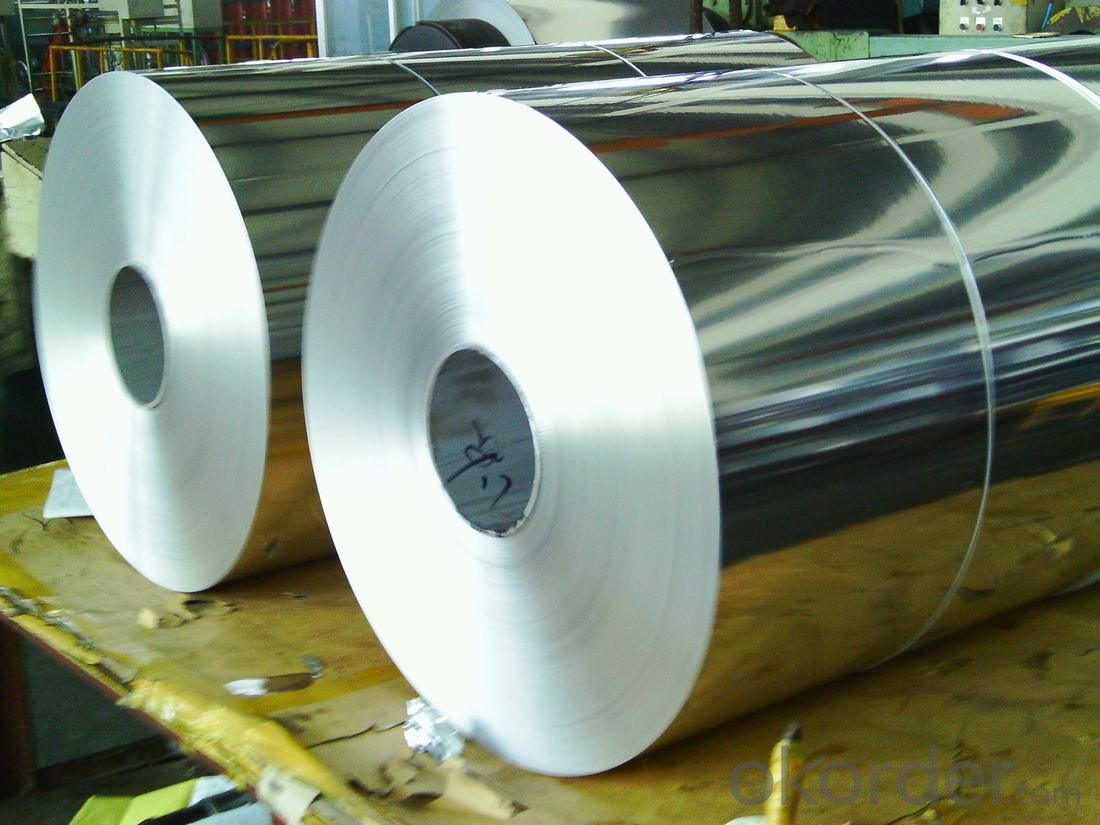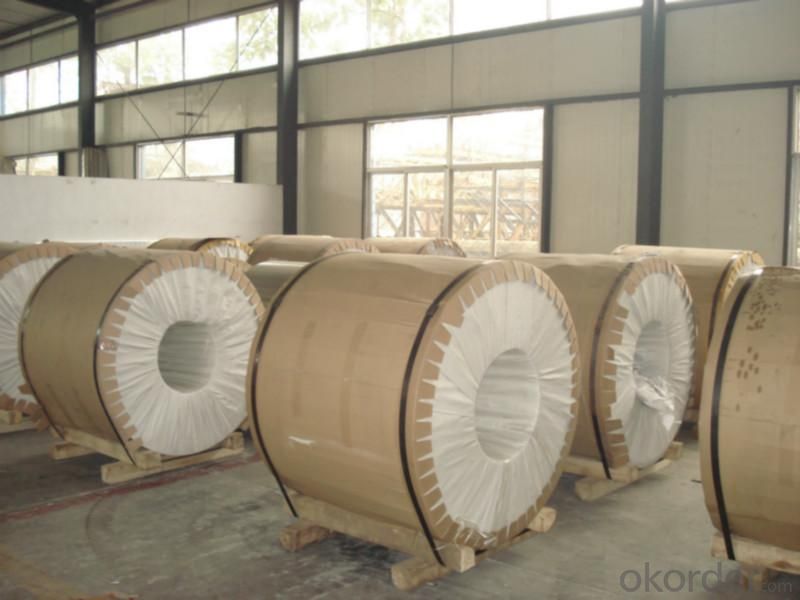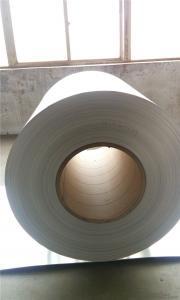ASTM Grade 1070 Aluminum Strips Belt For Solar
- Loading Port:
- Shanghai
- Payment Terms:
- TT OR LC
- Min Order Qty:
- 5 m.t.
- Supply Capability:
- 500 m.t./month
OKorder Service Pledge
OKorder Financial Service
You Might Also Like
Item specifice
ASTM Grade 1070 Aluminum Strips Belt For Solar
aluminum coil specifications:
1) Alloy :1050, 1060,1100, 3003 3004 3105 3A21 5005 5052 etc
2) Temper: O/H12/H14/H1/H18/H32/H34/H36/H38//H111/H112/H116/H321/T6/T651/T3/T351 etc
3) Thickness: 0.1mm to 6mm
4) Width:20mm to 3300mm
5)Coil weight: 100kgs to 6 tons depends on actual requirement
6)Core material: Aluminum or paper
7)Coil Inner diameter: 75mm, 150mm, 200mm, 300mm, 405mm, 505mm or as required
8) Protective film can be added
item | 3003 Aluminum coil | |
Standard | GB/T3190-2008,GB/T3880-2006,ASTM B209,JIS H4000-2006,etc | |
Material | 1060,1050,1100 3003,3103,3004,3005,3105 5052, 5454,5754 | |
Size | Thickness | 0.5mm-3.5mm |
Width | 800-1500mm | |
Weight/Roll | About 1.5MT/3MT | |
Quality control | Mill Test Certificate is supplied with shipment, Third Part Inspection is acceptable. | |
Surface | Bright, polished, hair line, brush, checkered, embossed, etc | |
Trade terms | Price term | ,FOB, CNF, CIF, etc |
Payment Term | TT,L/C | |
MOQ | 2MT | |
20 GP Capacity | About 20-25MT | |
Delivery time | 1.The products will delivery immediately after receiving the payment. 2.According to the order quantity, prompt delivery. | |
Export to | Ireland,Singapore,Indonesia,Ukraine,Spain,Canada,USA,Brazil,Thailand,Korea,Iran,India,Egypt,Kuwait, Oman,Viet Nam, South Africa, Dubai, Russia, etc | |
Package | Stick blue film→plastic film→waterproof paper→1~2 tons on a export standard pallet(corner protection) | |
Application | 1)Further making utensil.2)Solar reflective film3)The appearance of the building4)Interior decorating:ceilings,walls,etc.5)Furniture cabinets6)Elevator decoraction7)Signs,nameplate,bags making.8)Decoration inside and outside the car9)Household appliances:refrigerators,microwave ovens,audio equipment,etc.10)The consumer electronics:mobile phones,digital cameras,MP3,etc. | |



- Q:Are there any limitations on the bending or shaping of aluminum coils?
- Aluminum coils do have limitations when it comes to bending or shaping. Despite being a soft and malleable metal, there are factors that can affect its bendability. The thickness of the aluminum coil plays a role in its bendability. Thicker coils are generally more difficult to bend compared to thinner ones because they have increased resistance to deformation. The temper or hardness of the aluminum coil also affects its bendability. Different tempers, such as soft, half-hard, or hard, have varying degrees of malleability. Soft tempers are easier to bend, while harder ones require more force and may be prone to cracking or breaking during bending. The desired bend or shape's design and complexity can impose limitations as well. Sharp bends or intricate shapes may cause the aluminum coil to crack or deform, especially if it lacks proper support or if the bending radius is too small. Impurities, defects, or alloying elements present in the aluminum coil can also impact its bendability. These factors can lead to inconsistencies in the material's mechanical properties, making it more susceptible to cracking or breaking during bending or shaping. Therefore, it is crucial to consider the thickness, temper, design, and quality of the aluminum coil to ensure successful and safe bending and shaping.
- Q:Are aluminum coils suitable for insulation applications?
- No, aluminum coils are not suitable for insulation applications.
- Q:Can aluminum coils be used in automotive manufacturing?
- Yes, aluminum coils can be used in automotive manufacturing. Aluminum is a lightweight and durable material, making it a suitable choice for various automotive components such as body panels, engine parts, and heat exchangers. Its corrosion resistance and recyclability also make it an attractive option for the automotive industry.
- Q:How much does it cost to use fluorocarbon paint for aluminum coil roller coating?
- Fluorocarbon paint can be divided into fluorocarbon paint for exterior wall, aluminum fluorocarbon paint, metal fluorocarbon paint and steel structure fluorocarbon paint according to usages. It can also be divided into national standard product and non-national standard product according to industrial standards.
- Q:What are the common surface finishes for aluminum coils in the automotive industry?
- Aluminum coils are extensively utilized in the automotive sector for various purposes due to their lightweight, high strength, and resistance to corrosion. To safeguard them from environmental elements and improve their appearance, aluminum coils in the automotive industry often undergo surface treatments. Anodizing is one of the most prevalent surface treatments for aluminum coils in the automotive industry. It is an electrochemical process that forms a thin protective layer on the surface of the aluminum coil. This treatment not only offers excellent corrosion resistance but also allows for customization of colors, making it a popular choice for automotive applications. Anodized aluminum coils can be found in a variety of colors and finishes, adding aesthetic appeal to vehicles. Another commonly employed surface treatment for aluminum coils in the automotive industry is powder coating. This technique involves applying dry powder paint onto the aluminum coil's surface and then curing it under heat to create a durable and long-lasting finish. Powder coating provides exceptional resistance to chipping, scratching, and fading, making it ideal for automotive components exposed to harsh conditions that require high durability. Moreover, powder coating offers a wide range of color options, enabling manufacturers to achieve the desired aesthetic appearance. Additionally, aluminum coils in the automotive industry may undergo other surface treatments like laminating, painting, or polishing, depending on specific application requirements. Laminating involves bonding a thin protective film onto the surface of the aluminum coil to provide additional protection against abrasion and chemical exposure. Painting entails the application of liquid paint onto the aluminum coil's surface, allowing for customization and protection against corrosion. Polishing, on the other hand, is a mechanical process that enhances the surface smoothness and appearance of the aluminum coil, resulting in a reflective and glossy finish. To summarize, the automotive industry commonly employs surface treatments such as anodizing, powder coating, laminating, painting, and polishing for aluminum coils. These treatments not only enhance the appearance of the aluminum coils but also provide protection against corrosion, abrasion, and other environmental factors, making them indispensable in the manufacturing of automotive components.
- Q:How are aluminum coils protected against moisture?
- To safeguard aluminum coils against moisture, a process known as coating is employed. A shielding layer of protective material, such as polymer or paint, is applied to the coils, creating a barrier between the aluminum and its surroundings. This coating effectively obstructs direct contact between moisture and the aluminum surface, mitigating the chances of corrosion and harm. Moreover, certain manufacturers may choose to augment moisture resistance by applying a specialized sealant on the coil edges. Through these protective measures, the durability of aluminum coils is maintained, enabling them to function optimally even in environments characterized by humidity or dampness.
- Q:What are the different coil diameters available for aluminum coils?
- The coil diameters available for aluminum coils can vary depending on the specific requirements and applications. Generally, aluminum coils are available in a range of diameters to suit different needs. These diameters can range from as small as a few inches to as large as several feet. The exact coil diameter options can differ between manufacturers and suppliers. It is important to note that the chosen diameter will impact factors such as coil weight, handling, and compatibility with specific machinery or equipment. Therefore, it is advisable to consult with suppliers or manufacturers to determine the specific coil diameter options available for aluminum coils based on the intended use and requirements.
- Q:Can aluminum coils be used for automotive body panels?
- Yes, aluminum coils can be used for automotive body panels. In fact, aluminum is a popular choice for car manufacturers due to its lightweight and corrosion-resistant properties, leading to improved fuel efficiency and longevity of the vehicle.
- Q:What are the common international standards and certifications for aluminum coils?
- There are several common international standards and certifications for aluminum coils that ensure their quality and compliance with industry requirements. These standards and certifications include: 1. International Organization for Standardization (ISO): ISO 9001 is a globally recognized standard for quality management systems. It ensures that the manufacturer has implemented effective quality control processes throughout their production and supply chain, resulting in consistent and reliable aluminum coils. 2. American Society for Testing and Materials (ASTM): ASTM International develops and publishes technical standards for various materials, including aluminum coils. ASTM B209 is a commonly referenced standard for aluminum and aluminum-alloy sheet and plate, which covers the general requirements for flat-rolled aluminum products. 3. European Norms (EN): EN 485 is a European standard that specifies the mechanical properties, dimensions, and tolerances of aluminum and aluminum alloys. It ensures that the aluminum coils manufactured in Europe comply with the specified quality and performance requirements. 4. Japan Industrial Standards (JIS): JIS H 4000 is a set of standards developed by the Japanese Industrial Standards Committee for aluminum and aluminum alloys. It covers the chemical composition, mechanical properties, and dimensions of aluminum coils, ensuring their suitability for various applications. 5. Aluminium Stewardship Initiative (ASI) Certification: ASI is a global, multi-stakeholder initiative that promotes responsible production, sourcing, and stewardship of aluminum. The ASI Certification ensures that aluminum coil manufacturers follow strict environmental, social, and governance standards, including responsible sourcing of raw materials and sustainable production practices. 6. United States Aluminum Association Certification: The Aluminum Association is a trade association in the United States that represents the aluminum industry. Their certification programs, such as the Aluminum Transportation Group (ATG) Certification, ensure that aluminum coils meet the industry's specific requirements for automotive, aerospace, and other transportation applications. These standards and certifications provide assurance to customers that the aluminum coils they are purchasing meet the necessary quality, performance, and sustainability standards. It is important for manufacturers and suppliers to adhere to these international standards to gain credibility and maintain the trust of their customers in the global market.
- Q:Aluminium forms layer of aluminium oxide when exposed to air. This prevents further reaction.However, isn't aluminium oxide an amphoteric oxide that can react with both acids and alkalis?
- Aluminium forms layer of aluminium oxide when exposed to air. This prevents further reaction WITH AIR.
1. Manufacturer Overview |
|
|---|---|
| Location | |
| Year Established | |
| Annual Output Value | |
| Main Markets | |
| Company Certifications | |
2. Manufacturer Certificates |
|
|---|---|
| a) Certification Name | |
| Range | |
| Reference | |
| Validity Period | |
3. Manufacturer Capability |
|
|---|---|
| a)Trade Capacity | |
| Nearest Port | |
| Export Percentage | |
| No.of Employees in Trade Department | |
| Language Spoken: | |
| b)Factory Information | |
| Factory Size: | |
| No. of Production Lines | |
| Contract Manufacturing | |
| Product Price Range | |
Send your message to us
ASTM Grade 1070 Aluminum Strips Belt For Solar
- Loading Port:
- Shanghai
- Payment Terms:
- TT OR LC
- Min Order Qty:
- 5 m.t.
- Supply Capability:
- 500 m.t./month
OKorder Service Pledge
OKorder Financial Service
Similar products
New products
Hot products
Related keywords




























